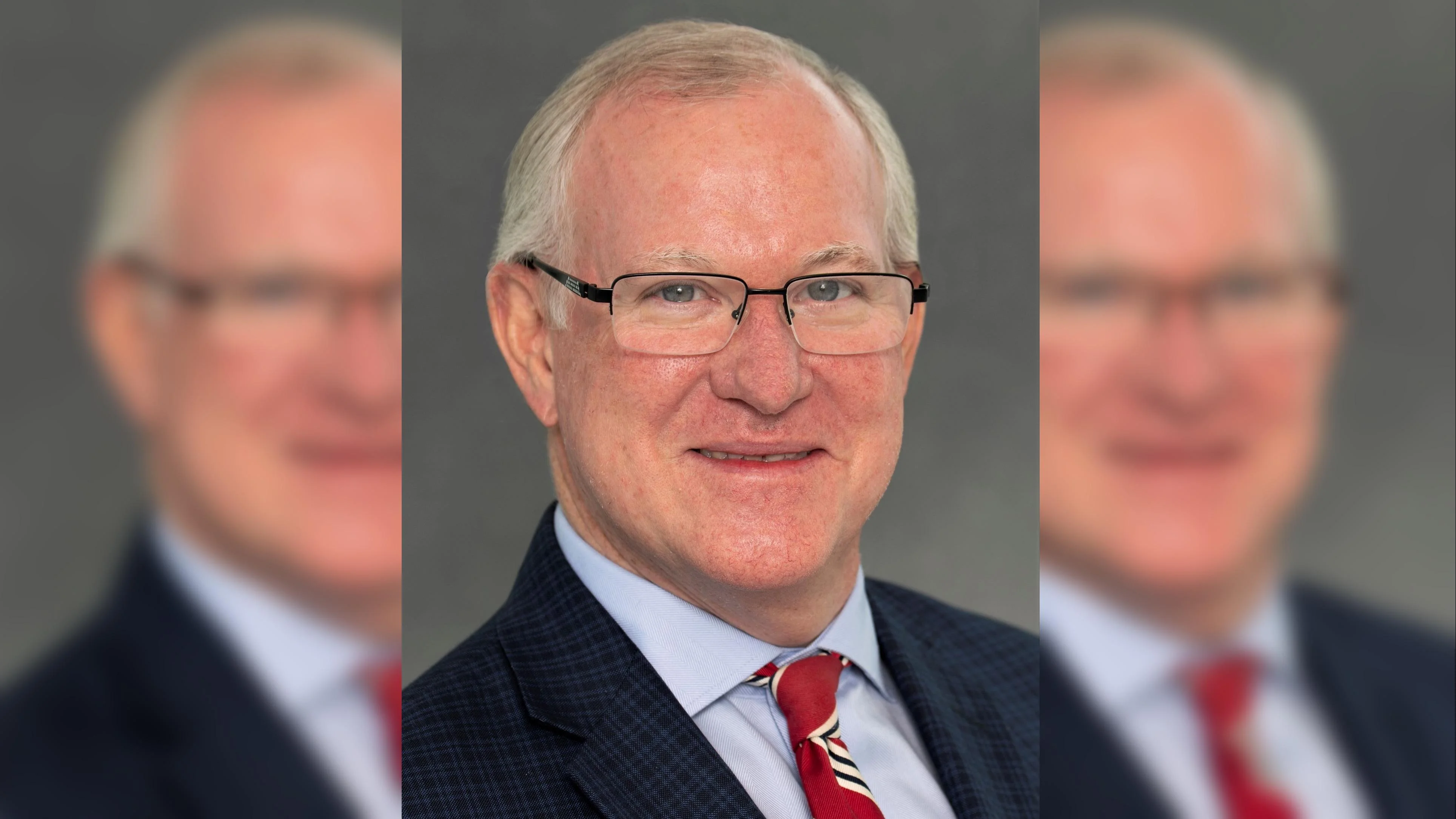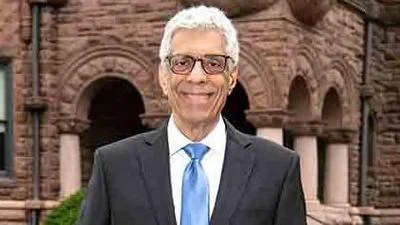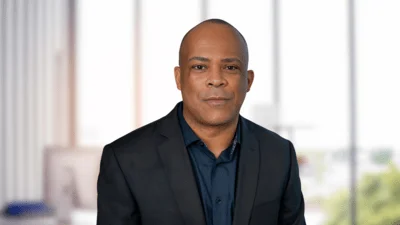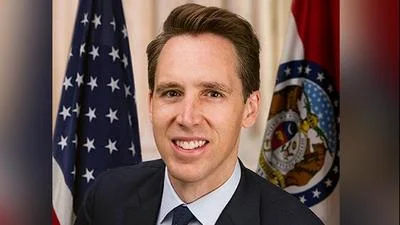John Lynch, MD President | Barnes Jewish Hospital
John Lynch, MD President | Barnes Jewish Hospital
Rodney Stromlund, who was first diagnosed with moderate mitral valve prolapse at age 35, managed his condition for years while staying active. After relocating to Arkansas during the COVID-19 pandemic, a new primary care physician found that his heart condition had become more serious.
“My physician thought the mitral valve prolapse was more than moderate and urged me to see a cardiologist,” Rodney says.
His cardiologist explained that improper sealing of the mitral valve could lead to mitral regurgitation, causing blood to leak into the heart and potentially resulting in heart failure. Given these risks, Rodney was advised to consider surgery sooner rather than later.
“I was told I’d need to get my mitral valve repaired, and it might be better to do it while I was younger and in good health,” Rodney says. “That way, the recovery would likely be easier and faster.”
By late 2024, at age 55, Rodney decided on surgery but hoped for a less invasive option than open-heart surgery. He learned that Barnes-Jewish Hospital is the only hospital within 200 miles of his home offering robotic mitral valve repair.
Barnes-Jewish Hospital partners with Washington University School of Medicine (WashU Medicine) to provide a wide range of treatments for patients with different types of heart valve conditions.
Rodney’s cardiologist referred him to Dr. Tsuyoshi Kaneko, a WashU Medicine cardiothoracic surgeon who had performed Barnes-Jewish Hospital’s first robotic mitral valve surgery earlier in the year.
Dr. Kaneko described how this approach differs from traditional open-heart procedures: “We operate through tiny ports between the ribs,” Dr. Kaneko says. “Our instruments articulate like a human wrist. It’s like having super-fine forearms inside the chest. Patients often experience faster recovery time, minimal scarring, minimal pain, and are up and walking within a day. For active patients like Rodney, it’s a game-changer.”
In November 2024, Rodney underwent robotic mitral valve repair at Barnes-Jewish Hospital—becoming one of few patients nationwide treated with this method—and reported positive results from his experience.
“I attribute my recovery to the surgery being robotic,” Rodney says. “I was out of intensive care in under 24 hours. I was able to sit up and move around after the surgery. Physical therapy came to see me to make sure I could walk, and I did great. They didn’t have to come back.”
“The team at Barnes-Jewish Hospital and WashU Medicine was amazing,” he continues. “They were professional, kind, and caring. It made all the difference.”
Dr. Kaneko emphasized early detection and timely intervention for patients with mitral regurgitation: “Each successful case reinforces our commitment to this technology,” Dr. Kaneko says. “Our goal is to combine surgical excellence with patient comfort to deliver world-class care.”
After returning home in Arkansas following his procedure at Barnes-Jewish Hospital—a leading center for advanced cardiac surgeries—Rodney looks forward to resuming activities such as hiking and scuba diving.
“This surgery gave me my momentum back,” Rodney says.
Reflecting on his journey through diagnosis and treatment using innovative techniques available at specialized centers like Barnes-Jewish Hospital has given him new perspective:
“I’ve learned not to take the heart for granted and to take care of my health,” he says.






 Alerts Sign-up
Alerts Sign-up